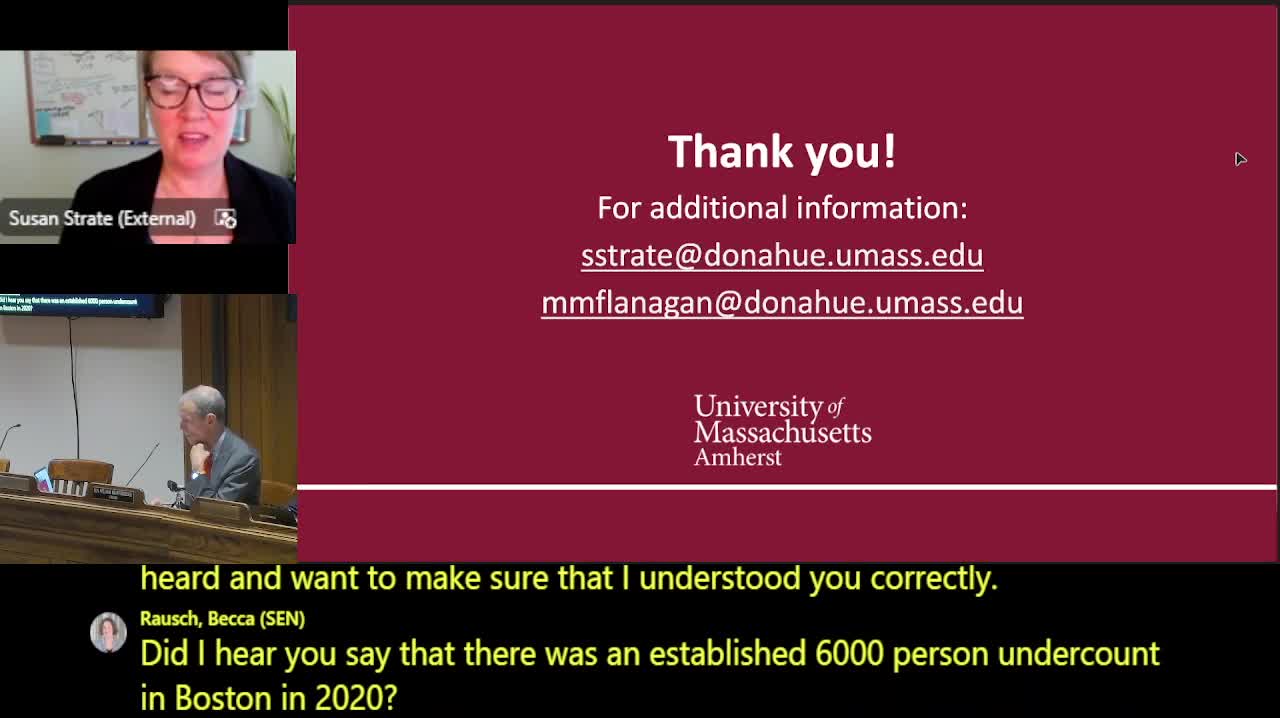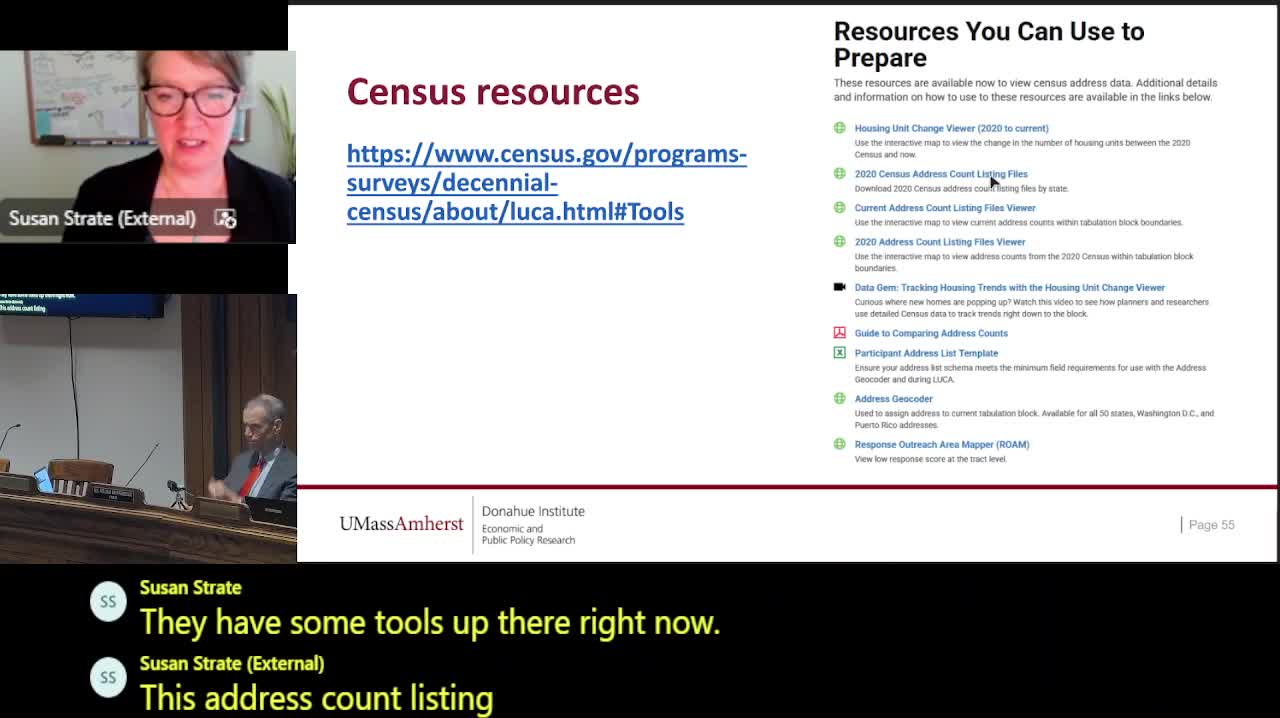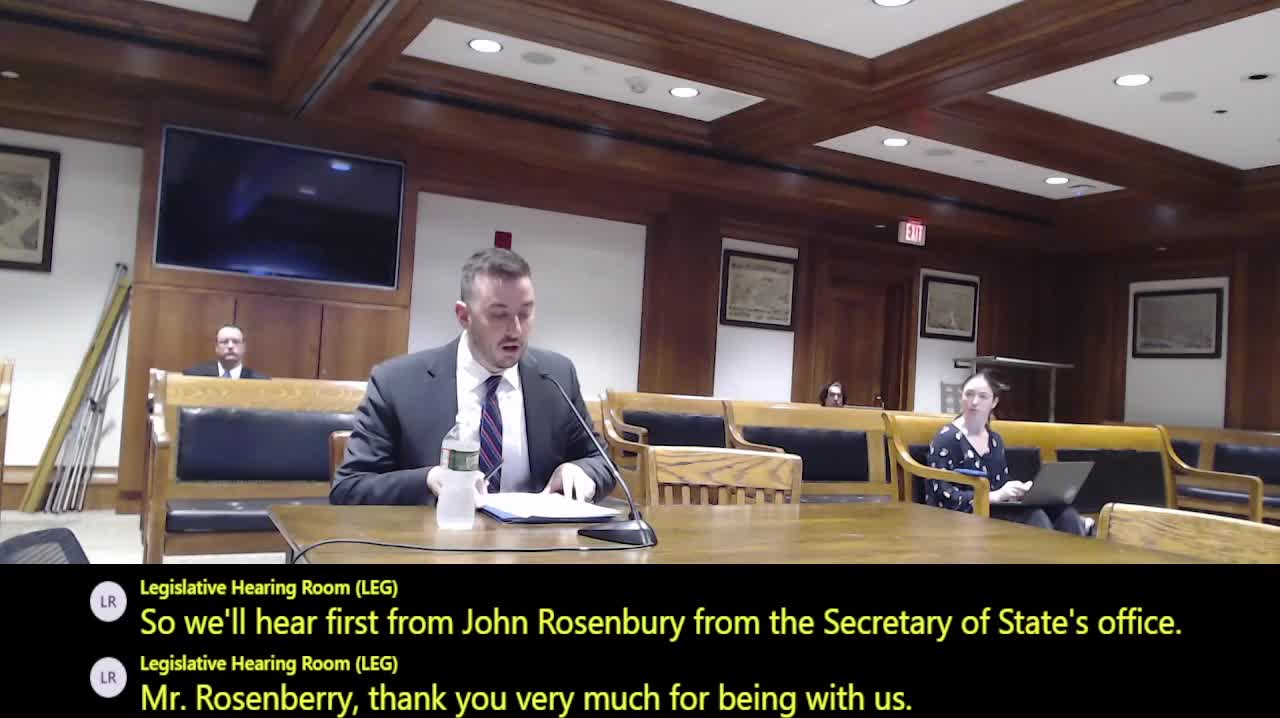Article not found
This article is no longer available. But don't worry—we've gathered other articles that discuss the same topic.

Speakers recall 2020 corrections, warn some pandemic‑era gaps may persist until 2030

City and town clerks, managers say municipal address management and staffing key to accurate 2030 count

MassGIS officials emphasize statewide Master Address Database as a foundation for 2030 Census work

